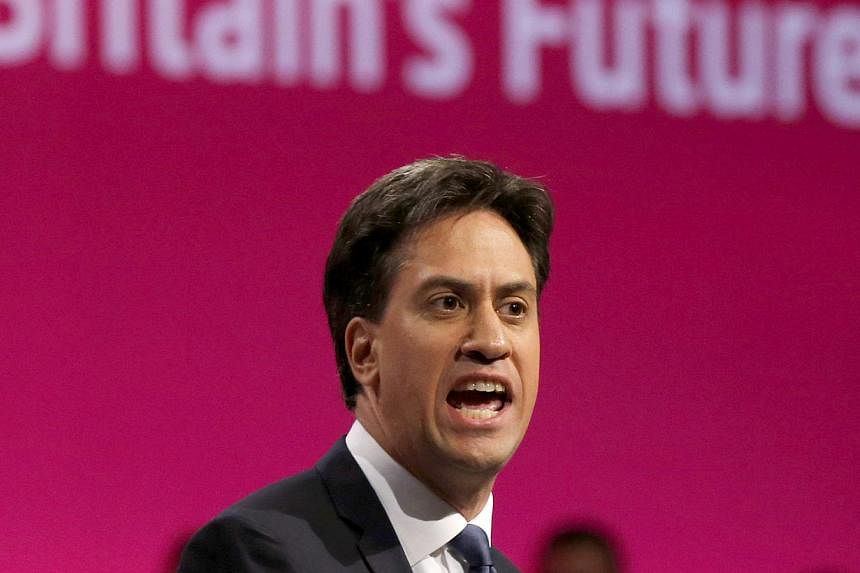LONDON (REUTERS) - Ed Miliband, the leader of Britain's centre-left opposition Labour party, on Thursday described media reports that members of his own party were conspiring to oust him as "nonsense", as he sought to keep his bid to become prime minister on track.
Labour have a narrow lead over Prime Minister David Cameron's Conservatives in opinion polls ahead of a national election in May 2015.
But Miliband's personal rating has sunk to its lowest ever level, raising doubts among supporters whether he is capable of delivering an outright win.
Newspaper reports said unnamed members of Miliband's team feared that lawmakers in his own party were circulating a letter calling for him to resign for the good of the party.
The BBC reported two lawmakers had signed such a letter.
"Honestly this is nonsense," Miliband told BBC TV. "I don't accept that this matter arises, what I believe the party wants to focus on is the country."
Derided by the press as socially awkward since he assumed the party's leadership in 2010, Miliband, an Oxford-educated career politician with the demeanour of an academic, is seen by some in and around his party as an electoral liability rather than an asset.
In September, his party conference rallying cry left many activists underwhelmed, and an admission that he forgot paragraphs in his speech covering the key electoral issues of immigration and the budget deficit have been used by opponents to criticise his leadership.
"At the moment, Ed is a hindrance to the Labour party's success but people are still saying they prefer a Labour government to a Conservative government in the polls," said Andrew Harrop, general secretary of the Fabian Society, a think-tank and one of the party's original founders, on BBC radio.
"I think his own confidence may have taken a battering and the only way that he is going to stand up and appear to be a convincing prime minister-in-waiting is looking the part, being more confident, being on the front foot."
The New Statesman, a left-leaning publication that backed his successful 2010 bid to lead the party, on Wednesday published a highly critical article about Miliband, saying he had failed to understand lower-middle class voters.
"Most damaging, I think, is that he seldom seems optimistic about the country he wishes to lead. Miliband speaks too often of struggle and failure, of people as victims," the magazine's editor Jason Cowley wrote.
A poll on Sunday showed that 73 per cent of voters thought Miliband was doing badly, with only 18 per cent saying he was doing a good job.
That gave him an overall approval rating of -55 and meant he had overtaken Nick Clegg, the deputy prime minister and leader of junior coalition partner the Liberal Democrats, as the least popular of the three main party leaders.
That poll followed a national survey published on Oct 30 which showed that support for Labour had collapsed in Scotland - a traditional stronghold where it won 41 of 59 seats in 2010 - since the country voted against independence in September.
The poll results, if repeated next year, suggested Labour could lose 90 per cent of its lawmakers in Scotland, making an overall win unlikely in what is expected to be a closely-fought election.

